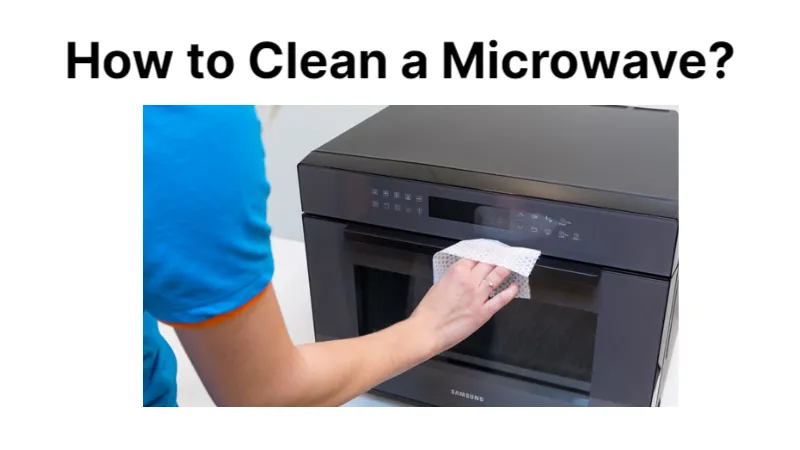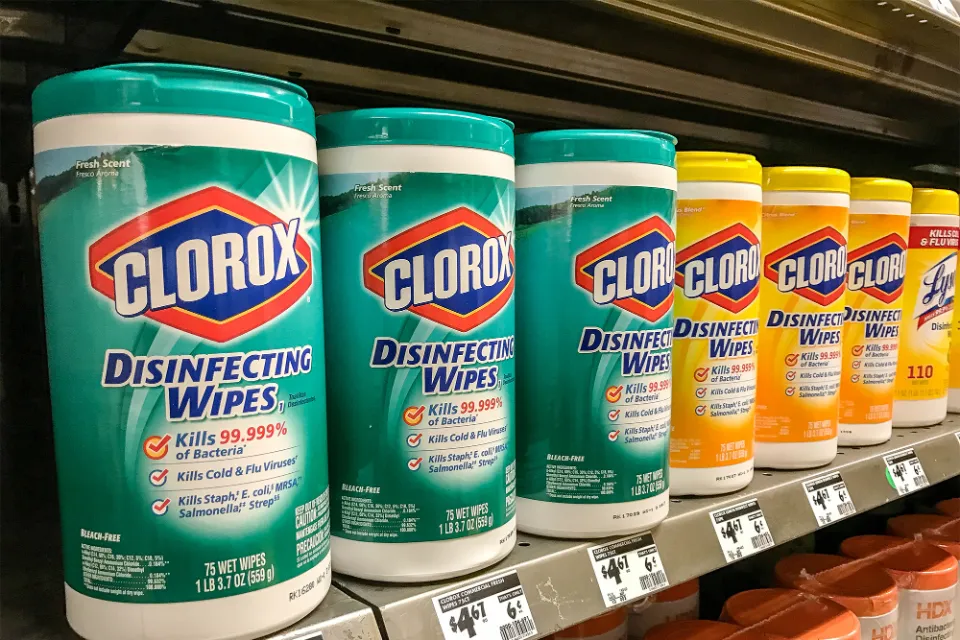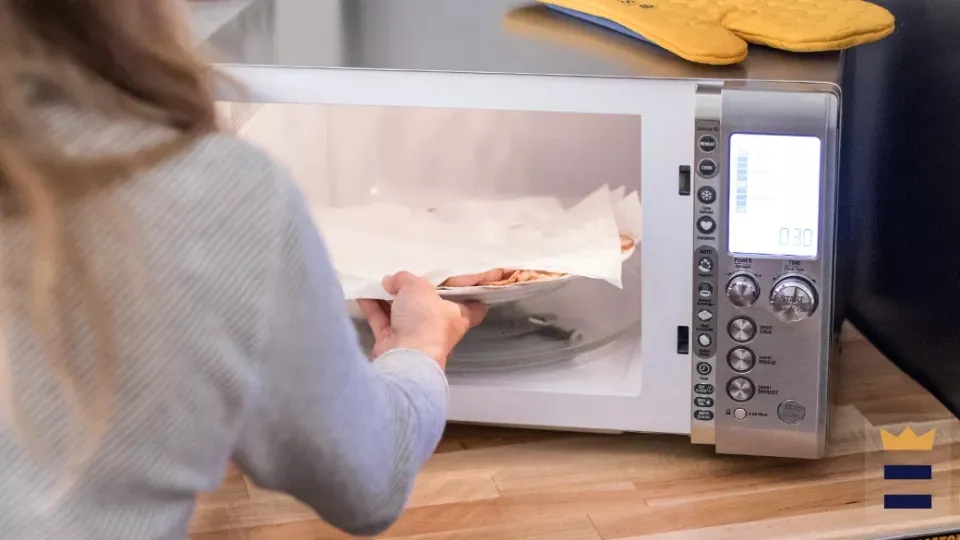Don’t call a repairman right away if your dishwasher has just started to leak. You can fix some of the most typical sources of dishwasher leaks on your own. But, Why is My Dishwasher Leaking?
Probably because of a Leaky Dishwasher Door, Leaky Dishwasher Tub, Loose or Damaged Valves, Improper Alignment, Wrong Type Or Amount Of Detergent, Spray Arm Clogged Or Damaged…
Find out why your dishwasher might be leaking and how to find and fix the issue.
Why is My Dishwasher Leaking? Causes and Fixes
Leaky Dishwasher Door
Is water gathering under the door itself? Your problem is probably due to a leak in the door itself. You might have a bent, loose, or improperly latching door latch. To keep the closure in place, tighten the latch with a screwdriver. Additionally, new latching systems can be installed. Replace the gasket if water is still dripping from the door. The dishwasher’s door rubber seal, which serves as a barrier against water egress, is shown here. Your gasket can be easily replaced if it has been damaged. Your new gasket will become flexible and simpler to install if you soak it in warm, soapy water. Go ahead and tighten the hinges if necessary while you’re working on the door.
Warning: Always turn off the unit’s power before performing any type of maintenance. Water, electricity, and a inexperienced repairman don’t mix (no offense intended)!
Leaky Dishwasher Tub
A leak may have formed from a hole worn in the tub if your dishwasher has received its fair share of loads. Minerals and detergents can corrode the tub’s bottom, allowing water to seep through and collect beneath your dishwasher. Although some tubs can be repaired, you might need to completely replace your dishwasher depending on the age of your appliance and the severity of the issue.
Nobody would be critical of you if you assumed that a dishwasher uses a sizable amount of water for each load. After all, one of the largest appliances in your home is usually this one. You may have wondered how much water does a dishwasher use.
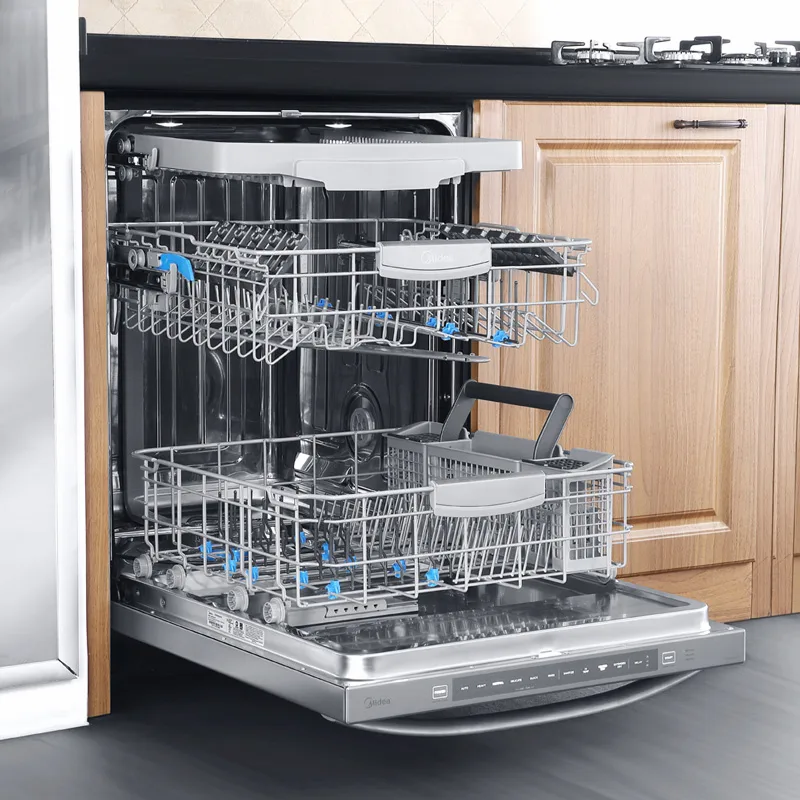
Loose Or Damaged Valves
Your dishwasher’s internal hoses and connections may become slack over time. Check the connections on your drain hoses to make sure they are tight (including the clamps holding the hose in place on either side) and make sure your water inlet valve isn’t stuck, which would undoubtedly result in flooding. It is simple to replace cracked hoses by going to the hardware store.
Improper Alignment
If your dishwasher isn’t level, water may collect under the appliance, which increases the likelihood of this happening. Put a level in the dishwasher’s bottom. Measure again after adding shims to the unit if it is out of alignment. Adjust until your dishwasher is perfectly level.
Wrong Type Or Amount of Detergent
Your choice of detergent and the amount you use may be the cause of your dishwasher occasionally leaking but not always. Dishwasher detergent should never be substituted for dishwashing soap because it will produce too much suds, which will lead to leaks during wash cycles. Even if you use dishwasher detergent regularly, adding too much can cause a lot of suds and leaks.
Use only dishwasher detergent and not dishwashing liquid or other cleaners to prevent leaks. To avoid oversudsing, follow the instructions on the detergent package for the correct amount to be added.
Spray Arm Clogged Or Damaged
Your dishwasher leaking while running could be caused by a number of spray arm problems.
Here’s how to assess dishwasher spray arms:
- Look for clogs: The other holes may spray more forcefully if one of the spray arm holes is blocked. This force may result in puddling that leads to leaks. Clogs can be cleared by detaching the arm and using a straightened paper clip or pin to remove the obstruction. To avoid clogs and blockages, our cleaning advice explains how to thoroughly clean a dishwasher and its spray arms.
- Check for obstructions: Water will also collect and leak if something in the dishwasher’s racks prevents the spray arms from rotating. Make sure the spray arms can rotate completely by manually turning them before beginning a wash cycle.
- Assess for damage: Additionally, the spray arm’s cracks or holes could lead to leaks from forceful spraying. The spray arm needs to be replaced if it is damaged.
Faulty Water Inlet Valve
Your dishwasher may be leaking water from underneath even if the drain hose is working properly. If this is the case, the water inlet valve may be broken. The dishwasher can receive water from your home supply through this valve, which opens and closes to allow water flow. If it breaks down, there might be a leak from one of its parts, leaving puddles under the dishwasher.
The water inlet valve is typically found on the water inlet hose at the back of the dishwasher. It cannot be fixed if it is leaking; a professional dishwasher repair service should replace it. Suggested reading: How long do dishwashers last? This guide will tell you how to prolong the life of your dishwasher and keep it in good working condition.
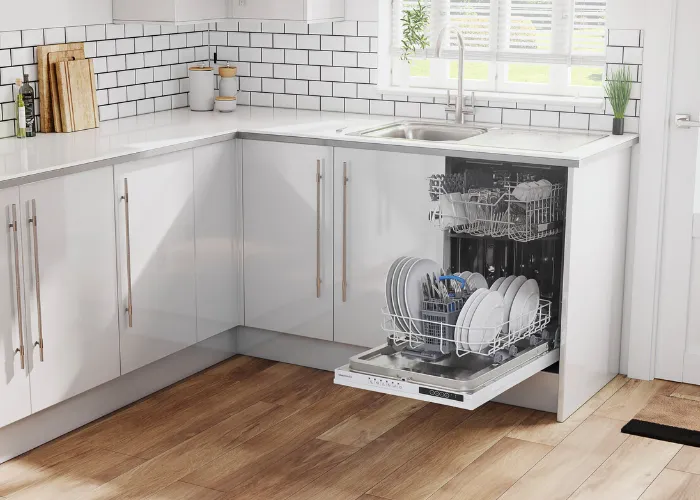
Overfilled Dishwasher
Your appliance might be absorbing more water than it ought to and not draining properly. By doing so, you’ll push water onto your floor from your dishwasher. The drain itself may be giving you trouble, or the float valve may not be sealing properly. Depending on the type of dishwasher you have, now would be a good time to visit the manufacturer’s website or your owner’s manual.
Appliance problems can be a pain in the neck, and dealing with dishwasher leaks and water in the bottom of the dishwasher probably isn’t on your list of favorite things to do. However, if you troubleshoot the issue patiently, you can save a lot of time and money while you wait for a professional repair service to assist you.
Dishwasher Drain Hose Malfunction
Dishwasher waste is transferred to the sink or disposal via the drain tube. Its connections may become looser with time, resulting in leaks from its clamps at the drain, garbage disposal, or dishwasher. Additionally, the hose may develop flaws like cracks or holes. A dishwasher’s underside may leak due to both damaged connections and loose ones.
Remove the lower front kick plate to inspect the hose at its dishwasher connection. Look under the kitchen sink to check the hose’s connection at the drain or garbage disposal. The connection clamps may need to be tightened if leaks are coming from them. However, the hose must be replaced if the clamps are harmed and leaking or the hose has a crack or hole.
Read about How to Reset Samsung Dishwasher?
How Do You Find a Leak in Your Dishwasher?
There are a number of potential sources for the leak in your dishwasher, including the area underneath it and the front door. Before attempting to troubleshoot the leak on your own, it is important to consult your Use and Care Guide for instructions and dishwasher parts specific to your model. Some tips for repairing a dishwasher leak include:
Always unplug the appliance or turn the breaker off before starting any repairs to the unit.
Verify that the water valve under the sink is shut off.
To dry up spills and keep the floor from becoming slick, keep towels or a sponge close at hand.
Summary: Why is My Dishwasher Leaking?
So, why is my dishwasher leaking?
Probably because of a Leaky Dishwasher Door, Leaky Dishwasher Tub, Loose or Damaged Valves, Improper Alignment, Wrong Type Or Amount Of Detergent, Spray Arm Clogged Or Damaged, Faulty Water Inlet Valve, Overfilled Dishwasher, and Dishwasher Drain Hose Malfunction.
Thank you for reading!

